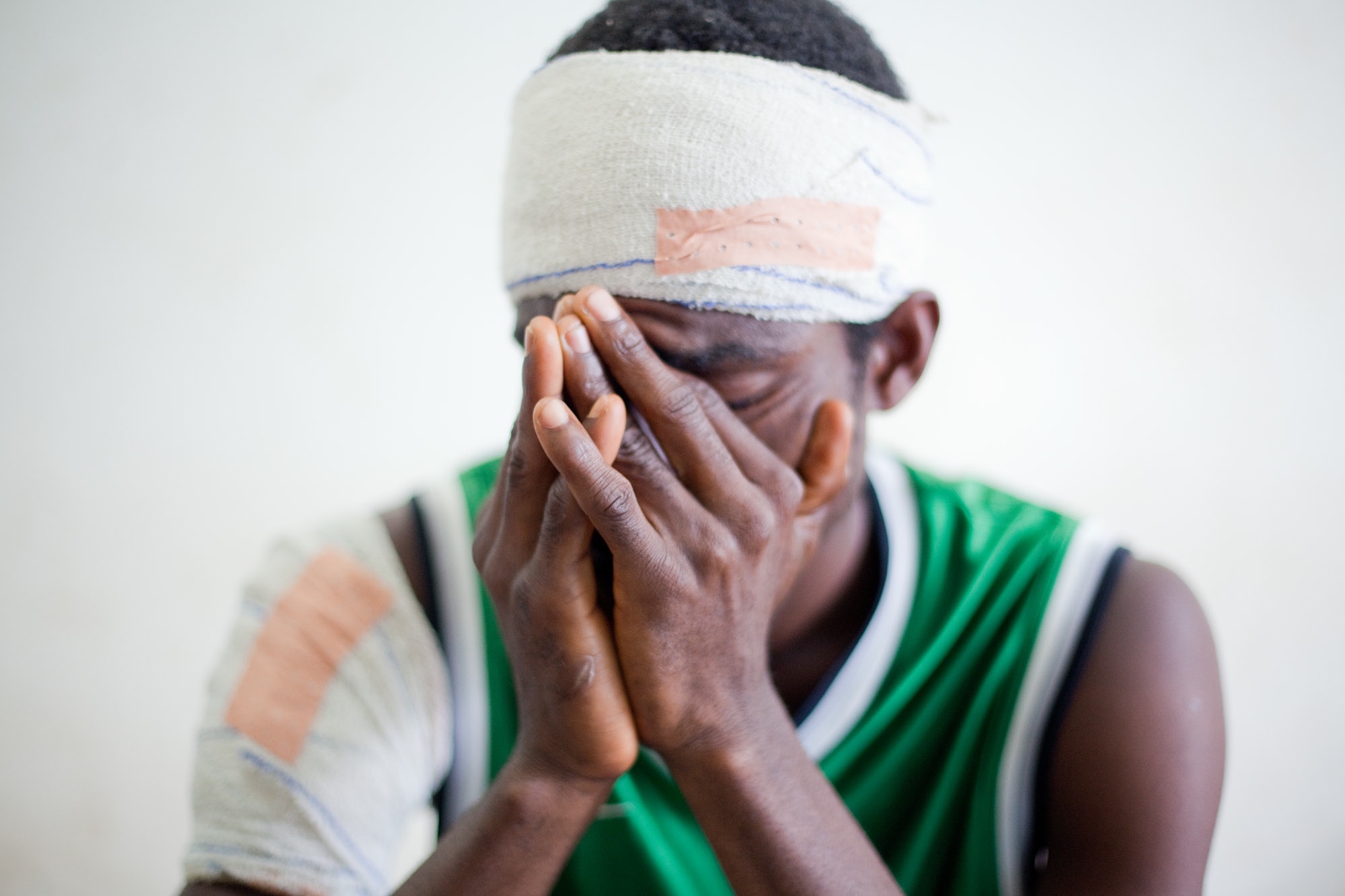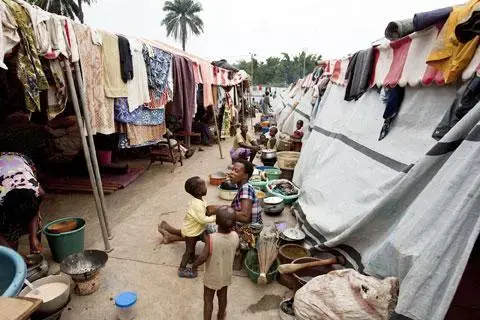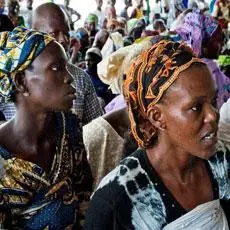Audio interview/print story by Joe DeCapua, Voice of America
Photo by Peter DiCampo, VOA and Pulitzer Center
A medical aid group says the humanitarian crisis is stabilizing in Ivory Coast's commercial capital, Abidjan, but continued violence in the west is blocking access to many in need. Doctors Without Borders [MSF] is providing medical services in many parts of the country and across the border in Liberia.
"In Abidjan, actually, the conditions have improved quite well these last days, most in terms of security. There's only one neighborhood that still remains very insecure. It's Yopougon neighborhood, where there is still fighting going on. But everywhere else in town security has improved," said Renzo Fricke, MSF emergency Coordinator, who's in Abidjan.
But….
Despite the overall improvement in the city, access to health care remains a problem. The Ivoirian Ministry of Health has declared free health care in Abidjan through until the end of May. "But there are no drugs to make this happen," said Fricke, "so it's a big issue now in town."
While MSF is able to fly in drugs for its own programs, which support government efforts, there's no word on when medicine requested by the government will arrive. And in Yopougon, civilians risk their lives trying to get to the hospital there.
Crowds queue at the outpatient department in Abobo Sud Hospital in Abidjan, Ivory Coast, April 18th, 2011. MSF has been supporting Abobo Sud Hospital since the end of February.
"This access remains very difficult. In other areas, it's becoming easier for people to access the hospitals," he said, "Of course there are a certain number of hospitals that are not able to deliver the services they normally provided before the crisis. So, you have only a few hospitals delivering the full packages. And there is very high pressure on these few hospitals."
Things are worse in the west
Fricke said, "Western Ivory Coast remains very unstable and we are very concerned because we see many civilians that continue to be targeted. And we have a lot of testimonies of people saying that they were either attacked or young ladies or women raped. There is still ongoing violence in the west and we are really concerned."
The rainy season has arrived, which may help trigger disease outbreaks among those without shelter or staying in overcrowded camps.
If Ivoirians are unable or too scared to seek medical care, Doctors Without Borders is trying to bring it to them.
"We have more than 12 mobile clinics, which are medical teams going to the villages and accessing where people are. But the thing is many people are really afraid of the violence and remaining militias perpetrating the violence," he said. "It's difficult to say the number, but tens of thousands probably of people hidden in the bush. And, of course, for us it's very difficult to access these people."
Across the Border
In Liberia, MSF medical teams are treating newly arrived Ivoirian refugees, some with wounds two or three weeks old. The group says the refugees spoke of intimidation, kidnapping, rape and even people being burned alive, as they made their way through the bush to the Liberian border.
MSF says safety is not guaranteed once they do get across. Militias apparently are also crossing in the night demanding food from the refugees.
"So this is very worrying. As refugees they should be in security, which is not the case today," said Fricke.
Some aids groups in Liberia are providing psychological counseling for women and girls who've been raped or sexually assaulted.
"We have medical teams working also with mobile clinics in supporting health structures," he said. "There are more and more…Ivorian people passing the border and entering Liberia."
In recent weeks, aid groups say most of the refugees entering Liberia were supporters of former Ivoirian president Laurent Gbagbo.
However, some Ivoirians are also reported going back home, mostly in the north.








